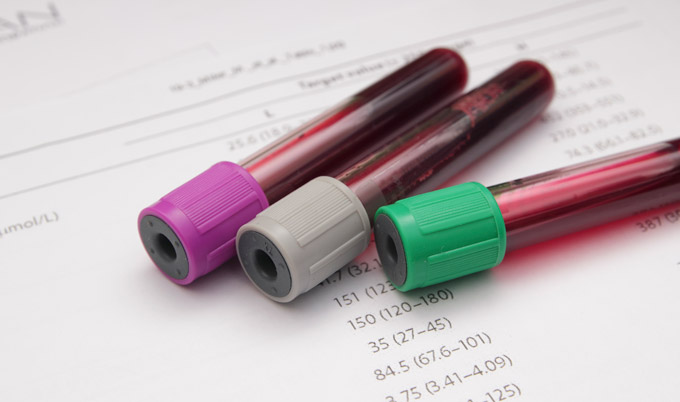New genetic blood test
New blood test developed to rapidly diagnose rare genetic diseases
Published on: 6 June 2025
Researchers have developed a blood test capable of rapidly diagnosing rare genetic diseases in babies and children, eliminating costly and invasive procedures and giving earlier access to treatment.
Genome sequencing has advanced the diagnosis of rare diseases. However, it is only successful at diagnosing half of all cases and the remaining patients must undergo additional functional tests to confirm if a gene mutation is causing their disease.
This testing can take months, or even years, with no guarantee of a result, as most functional tests are only applicable to a single or handful of rare diseases.

‘Exciting approach’
Now, research involving Newcastle University experts and published in Genome Medicine, reveals a new blood test can rapidly detect abnormalities in up to 50% of all known rare genetic diseases in just a matter of days.
The test works by analysing the pathogenicity of thousands of gene mutations in the body at once, potentially replacing the need for thousands of other functional tests.
Rob Taylor, Professor of Mitochondrial Pathology at Newcastle University and Head of the Highly Specialised Mitochondrial Laboratory at Newcastle Hospitals, a co-author of the study, said: “This approach is incredibly exciting, offering a rapid diagnostic functional test to support genetic testing and provide families with definitive diagnoses of rare disease.
“This new blood test will directly impact patient care through being able to offer available treatments quickly.”
The research team, including experts at Newcastle University, University of Melbourne and Murdoch Children's Research Institute (MCRI) in Australia, benchmarked their test against an existing clinically accredited enzyme test, focussing on mitochondrial diseases.
These diseases are a group of severe rare disorders that strip the body’s cells of energy, causing single or multiple organ dysfunction or failure, and potentially death.
The team found, comparatively, their new test is more effective in confirming a mitochondrial disease diagnosis as it’s much more sensitive, accurate and can produce faster results.
Associate Professor David Stroud, from the University of Melbourne, said: “A disease is rare if it affects fewer than one in 2,000 people and there are more than 7,000 different rare diseases, most of which have a genetic origin and many of these diseases are serious and progressive.
“If our blood test can provide clinical diagnoses for even half of the 50% of patients who don’t get a diagnosis through genome sequencing, that’s a significant outcome as it means those patients don’t have to undergo unnecessary and invasive testing.”
The researchers are now working closely together, supported by research funding through the charity LifeArc and a new UK-based LifeArc Centre for Rare Mitochondrial Disease, to replicate and validate the new blood test into NHS diagnostic services.

‘Greater chance of survival’
Professor David Thorburn, from the Murdoch Children’s Research Institute, said: “By providing patients and their families with a rapid clinical diagnosis, the patient has a greater chance at survival as they can begin treatment far sooner, if available.
"Even in cases where a child has died from an undiagnosed genetic disease, this new test can be carried out on tissue samples to determine the genetic mutation responsible for their death.
“Such diagnoses not only provide closure to families, but this information can also be used in IVF to help the parents to have future children who have not inherited the life-threatening disease.”
It’s anticipated the blood test will eventually be offered as a diagnostic service in the NHS and at the Victorian Clinical Genetic Services in Australia, supporting as many children and families as possible.
Reference:
Untargeted proteomics enables ultra-rapid variant prioritisation in mitochondrial and other rare diseases. Genome Medicine. Danielle Hock et al.



